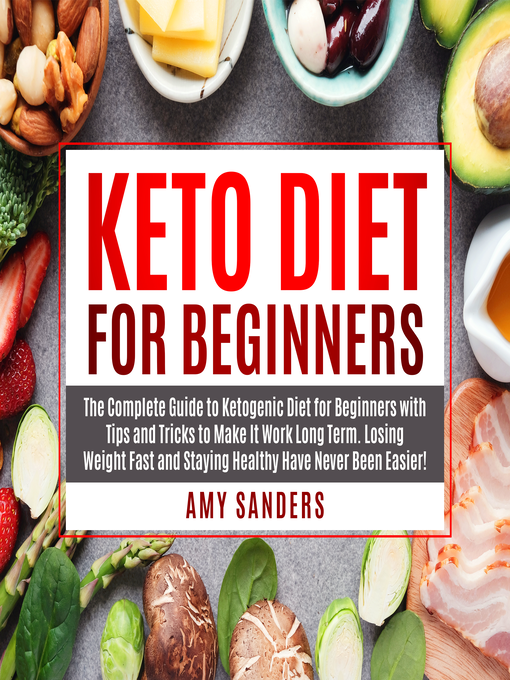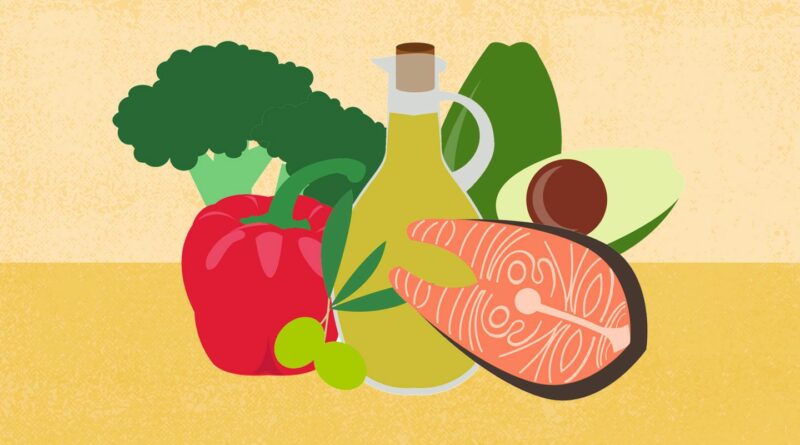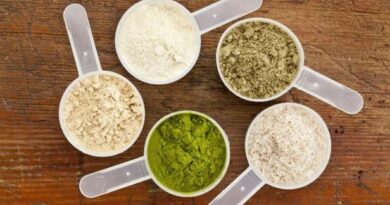Title: Foods That Increase Hemoglobin: A Comprehensive Guide
Foods that increase hemoglobin include iron-rich foods like leafy greens, beans, and red meat. A balanced diet including these foods can help boost hemoglobin levels in the body.
Adequate levels of hemoglobin are essential for the transportation of oxygen throughout the body. Low hemoglobin levels can lead to anemia which can cause fatigue, weakness, and shortness of breath. Incorporating iron-rich foods like spinach, lentils, and lean beef can aid in increasing hemoglobin levels and promoting overall health.

Credit: ohdbks.overdrive.com
The Role of Iron in Increasing Hemoglobin
Explanation of the role of iron in hemoglobin production
Iron is an essential mineral that is required for the production of hemoglobin. It is needed to create new red blood cells, which are essential for carrying oxygen throughout your body. Without iron, your body cannot produce enough red blood cells, which can lead to anemia and other health problems. In addition to its role in hemoglobin production, iron is also involved in several other important bodily functions, such as immune system function, energy production, and cognitive development.
Foods rich in iron that increase hemoglobin
Consuming foods that are high in iron can help increase your hemoglobin levels. Here are some examples of iron-rich foods that can boost hemoglobin production:
-
Red meat: Beef, lamb, and liver are excellent sources of iron.
-
Poultry: Chicken and turkey are also great sources of iron.
-
Seafood: Shellfish and fish, such as salmon and tuna, are rich in iron.
-
Legumes: Lentils, kidney beans, and chickpeas are excellent sources of iron.
-
Nuts and seeds: Cashews, pumpkin seeds, and almonds are all high in iron.
-
Dark leafy greens: Spinach, kale, and Swiss chard are all rich in iron.
In addition to incorporating these foods into your diet, it’s essential to consume adequate amounts of vitamin C, which can help improve your body’s ability to absorb iron.
Vegetarian sources of iron for non-meat eaters
If you’re a vegetarian or vegan, getting enough iron in your diet can be a bit more challenging. Here are some excellent plant-based sources of iron for non-meat eaters:
-
Tofu: Firm tofu is a good source of iron.
-
Legumes: Lentils, kidney beans, and chickpeas are all excellent sources of iron for non-meat eaters.
-
Nuts and seeds: Pumpkin seeds, cashews, and almonds are all high in iron.
-
Dark leafy greens: Spinach, Swiss chard, and kale are all rich in iron.
-
Whole grains: Quinoa, brown rice, and oats are all good sources of iron.
iron is an essential mineral that plays a vital role in hemoglobin production. Consuming iron-rich foods, whether animal or plant-based, can help increase your hemoglobin levels while improving your overall health and wellbeing. Incorporate these foods into your diet to keep your hemoglobin levels in check and your body functioning at its best.
Foods Rich in Vitamin C and Hemoglobin
The Link Between Vitamin C and Hemoglobin Levels
Vitamin C plays a crucial role in the production of hemoglobin in the body. It aids in the absorption of iron, which is critical for hemoglobin production. Therefore, a deficiency of Vitamin C can lead to lower hemoglobin levels.
Foods Rich in Vitamin C That Increase Hemoglobin
Including Vitamin C-rich foods in your diet is not only essential for maintaining overall health, but it can also help in increasing hemoglobin levels. Some of the foods that are rich in Vitamin C and can help in boosting hemoglobin levels are:
-
Citrus fruits such as oranges, lemons, limes, and grapefruits
-
Berries like strawberries, raspberries, and blueberries
-
Papayas and kiwis
-
Pineapples and mangoes
-
Tomatoes and broccoli
Incorporating these fruits and vegetables in your daily diet can help to improve hemoglobin levels and maintain overall health.
Suggestions for Incorporating Vitamin C-rich Foods Into the Diet
Incorporating Vitamin C-rich foods into your diet can be an easy task, and here are some tips to do so:
-
Add a handful of mixed berries to your breakfast oatmeal or yogurt
-
Sip on freshly squeezed orange juice with your breakfast or as a mid-day snack
-
Add a sliced kiwi or papaya to your fruit salad
-
Toss broccoli florets and diced tomatoes in your salad
By incorporating Vitamin C-rich foods in your meals, you can help increase hemoglobin levels and maintain overall health. incorporating foods that are rich in Vitamin C is essential for maintaining healthy hemoglobin levels in the body. It aids in the absorption of iron, which is crucial for hemoglobin production. Therefore, including fruits and vegetables like citrus fruits, berries, papayas, kiwis, tomatoes, and broccoli can help in boosting hemoglobin levels. Eat a well-rounded diet that incorporates diverse food groups, and you will notice an improvement in hemoglobin levels and overall health.
The Significance of Vitamin B12 in Increasing Hemoglobin
Explanation of Vitamin B12’s role in hemoglobin production
Vitamin B12 is a water-soluble vitamin that plays a significant role in the production of hemoglobin. It helps in the production of red blood cells in the bone marrow, and its deficiency can lead to the development of anemia. Hemoglobin is essential for carrying oxygen from the lungs to the body’s tissues. Deficiency of Vitamin B12 causes impaired hemoglobin synthesis, which reduces the production of red blood cells and leads to anemia.
Foods rich in Vitamin B12 that increase hemoglobin
Including foods rich in Vitamin B12 in your diet is an excellent way to enhance hemoglobin levels. The following are some foods that are rich in Vitamin B12 and can help increase hemoglobin:
-
Shellfish: Clams, oysters, and mussels are rich in Vitamin B12 and iron.
-
Meat: Beef, lamb, and liver are excellent sources of Vitamin B12 and iron.
-
Fish: Fish such as salmon, tuna, trout, and haddock are rich in Vitamin B12 and Omega-3 fatty acids.
-
Dairy products: Milk, yogurt, and cheese are excellent sources of Vitamin B12.
-
Eggs: Eggs are a great source of protein and Vitamin B12.
The importance of Vitamin B12 supplementation for people with digestive disorders
People with digestive disorders such as Crohn’s disease, Celiac disease, or inflammatory bowel disorders may have difficulty absorbing Vitamin B12 from food. In such cases, supplementation of Vitamin B12 is necessary to maintain healthy hemoglobin levels. Vitamin B12 supplementation can help prevent anemia in people with digestive disorders who struggle with nutrient absorption. maintaining healthy hemoglobin levels is essential for good health. Vitamin B12 plays a critical role in the production of red blood cells, which enhances hemoglobin levels. A diet rich in Vitamin B12 from foods can help improve hemoglobin levels in individuals. Supplementation of Vitamin B12 may be necessary for individuals with digestive disorders to maintain healthy hemoglobin levels.
Foods That Boost Folic Acid and Hemoglobin
Understanding the Relationship between Folic Acid and Hemoglobin
Folic acid is a type of vitamin B that is essential for producing healthy red blood cells. Hemoglobin, on the other hand, is the protein in red blood cells that carries oxygen throughout the body. The two are closely related, and low levels of folic acid can lead to lower levels of hemoglobin, resulting in anemia. Therefore, it is important to consume foods that are rich in folic acid to keep hemoglobin levels healthy.
Foods that are High in Folic Acid and Increase Hemoglobin
The following foods are high in folic acid and can help increase hemoglobin levels:
-
Leafy green vegetables such as spinach, kale, and collard greens.
-
Fortified breakfast cereals that contain 100% of the recommended daily intake of folic acid per serving.
-
Lentils, beans, and peas are rich sources of both protein and folic acid.
-
Citrus fruits such as oranges and grapefruits contain both folic acid and vitamin C, which helps the body absorb iron.
-
Asparagus is an excellent source of folic acid and is also high in iron and vitamin B6.
Information about the Recommended Daily Intake of Folic Acid
The recommended daily intake of folic acid for adults is 400 micrograms per day. Pregnant women should aim for 600 micrograms per day, as folic acid is crucial for fetal development. In addition to consuming folic acid-rich foods, taking a daily multivitamin can help ensure that you meet your daily recommended intake. Maintaining healthy hemoglobin levels is important for overall health and wellbeing. By incorporating these folic acid-rich foods into your diet, you can help keep your hemoglobin levels healthy and prevent anemia. Remember to consult with your healthcare provider before making any significant changes to your diet or taking supplements.
Other Foods That Help Increase Hemoglobin
The significance of other essential nutrients for hemoglobin levels – Vitamin A and Copper
Vitamin A and Copper are essential for the formation of red blood cells, which are responsible for carrying oxygen and nutrients to various parts of the body. They also help in maintaining healthy blood vessels and boosting the immune system.
Foods that are rich in Vitamin A and Copper and increase hemoglobin levels
- Sweet Potatoes – Sweet potatoes are a great source of Vitamin A, which helps in the formation of red blood cells. One medium-sized sweet potato contains approximately 438% of the daily recommended intake of Vitamin A. 2. Liver – Liver is an excellent source of both Vitamin A and Copper. Consuming liver can help increase hemoglobin levels significantly. Additionally, it is also a source of heme iron, which is easily absorbed by the body. 3. Spinach – Spinach is packed with various nutrients, including Vitamin A. It also contains Copper, which is essential for the absorption of iron into the bloodstream. Including spinach as part of a balanced diet can help improve hemoglobin levels. 4. Cashews – Cashews are an excellent source of Copper. Consuming a handful of cashews as a snack or adding them to a meal can help boost Copper levels in the body. 5. Beef – Beef is a significant source of Copper and heme iron. Consuming beef regularly can help increase hemoglobin levels and maintain healthy blood vessels. By including these foods in our diets, we can help boost hemoglobin levels and maintain good overall health.
Summary
Recap of the foods that increase hemoglobin
Here is a quick recap of the foods that can help increase your hemoglobin levels:
-
Red meat, poultry, and fish are high in iron.
-
Leafy greens like spinach and kale are a good source of iron and folate.
-
Legumes like lentils and beans are high in iron, folate, and vitamin B12.
-
Nuts and seeds like pumpkin seeds and cashews are high in iron.
-
Fortified cereals and grains are a good source of iron and folate.
-
Citrus fruits like oranges and lemons are high in vitamin C, which can help increase iron absorption.
Importance of eating a balanced diet
Eating a balanced diet is essential for maintaining healthy hemoglobin levels. Hemoglobin is a protein found in red blood cells that carries oxygen throughout the body. Iron, vitamin B12, folate, and vitamin C are all important for producing healthy red blood cells and maintaining adequate hemoglobin levels. Iron is essential for the production of hemoglobin, and a lack of iron can lead to anemia. Vitamin B12 and folate are also important for red blood cell production, as they help to build the cells and prevent them from breaking down too quickly. Vitamin C is necessary for the absorption of iron from plant-based sources like leafy greens and legumes.
Suggestions for incorporating these foods into the diet
Incorporating these foods into your diet can be easy and delicious. Here are some simple suggestions:
-
Add spinach or kale to your morning smoothie
-
Snack on pumpkin seeds or cashews throughout the day
-
Include a side salad with your lunch or dinner
-
Make a lentil soup or add lentils to a vegetable stir-fry
-
Swap out white bread for whole-grain bread or fortified cereal
-
Drink a glass of orange juice with your breakfast
By making small changes to your diet, you can increase your hemoglobin levels naturally and improve your overall health. Remember to eat a variety of foods and consult with a healthcare professional if you have any concerns about your hemoglobin levels.
Frequently Asked Questions on Title: Foods That Increase Hemoglobin: A Comprehensive Guide
1. What is Hemoglobin?
Hemoglobin is a protein in red blood cells that carries oxygen throughout the body.
2. What are the Best Foods to Increase Hemoglobin Levels?
Foods rich in iron like spinach, liver, red meat, and beans, are perfect for increasing hemoglobin levels.
3. Does Vitamin C Help Hemoglobin Levels?
Yes, Vitamin C helps increase the absorption of iron in the body, which is essential for healthy hemoglobin levels. Foods like oranges, lemons, and strawberries are excellent sources of Vitamin C.
4. Are There Any Foods That Lower Hemoglobin Levels?
Yes, excessive consumption of tea and coffee can hinder iron absorption, which may lead to lower hemoglobin levels.




